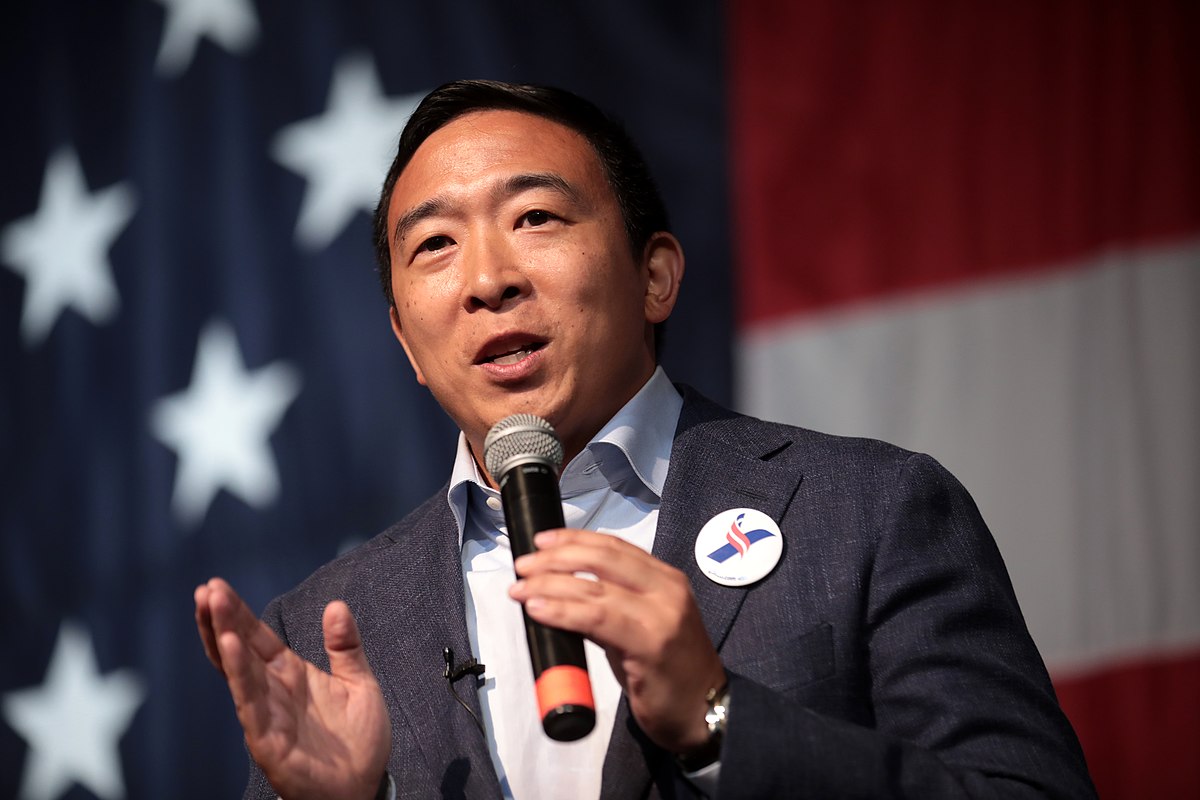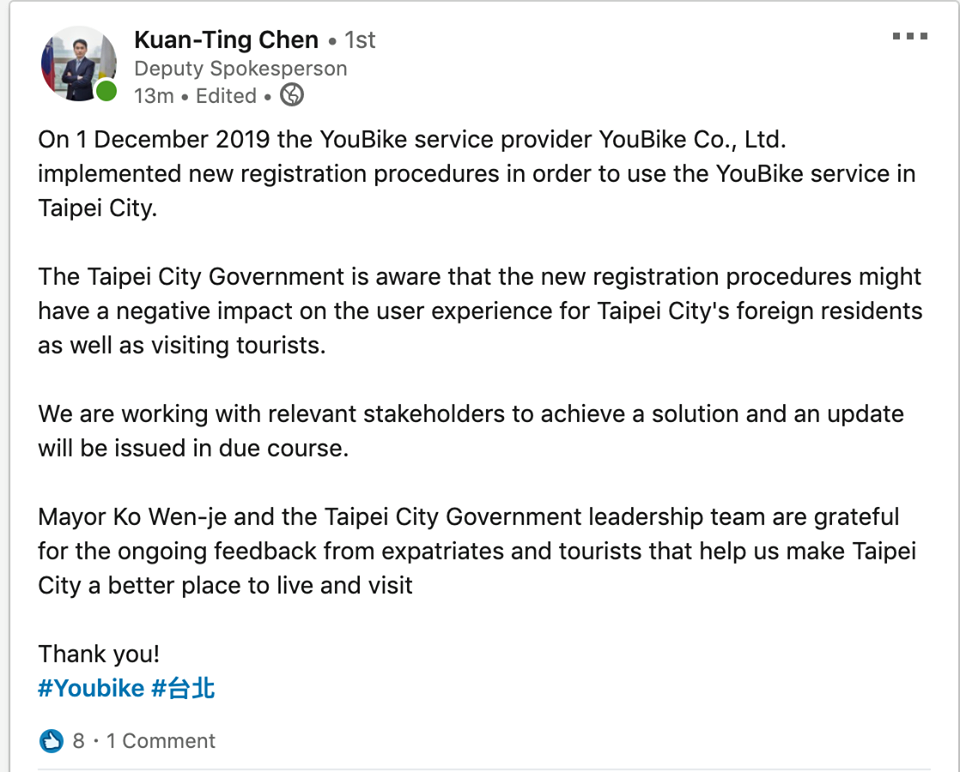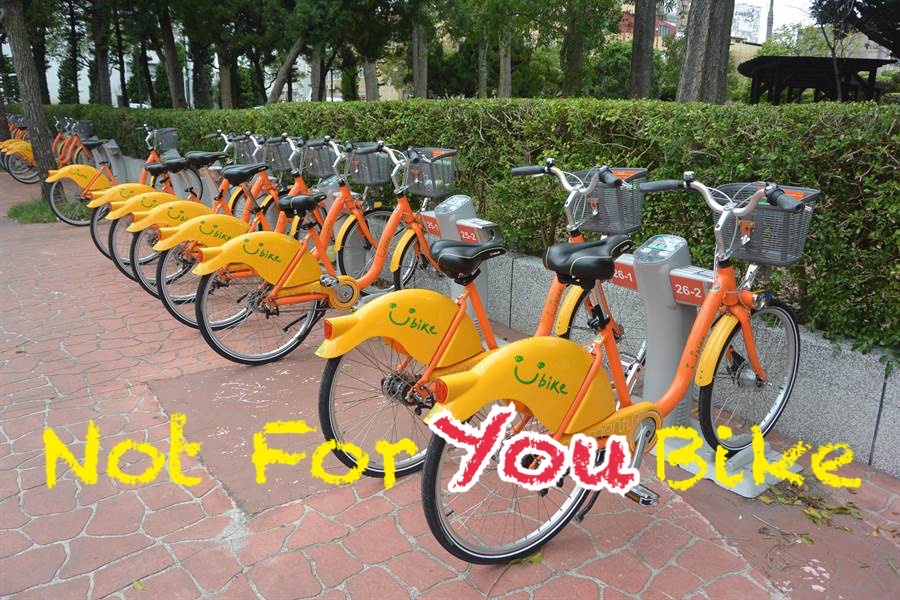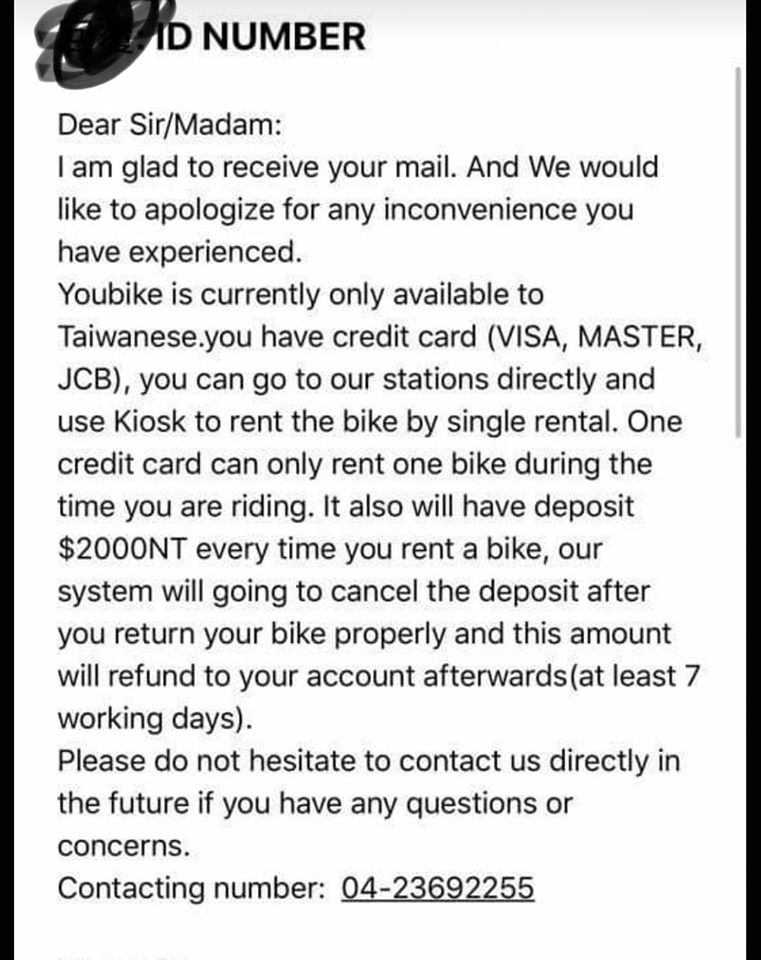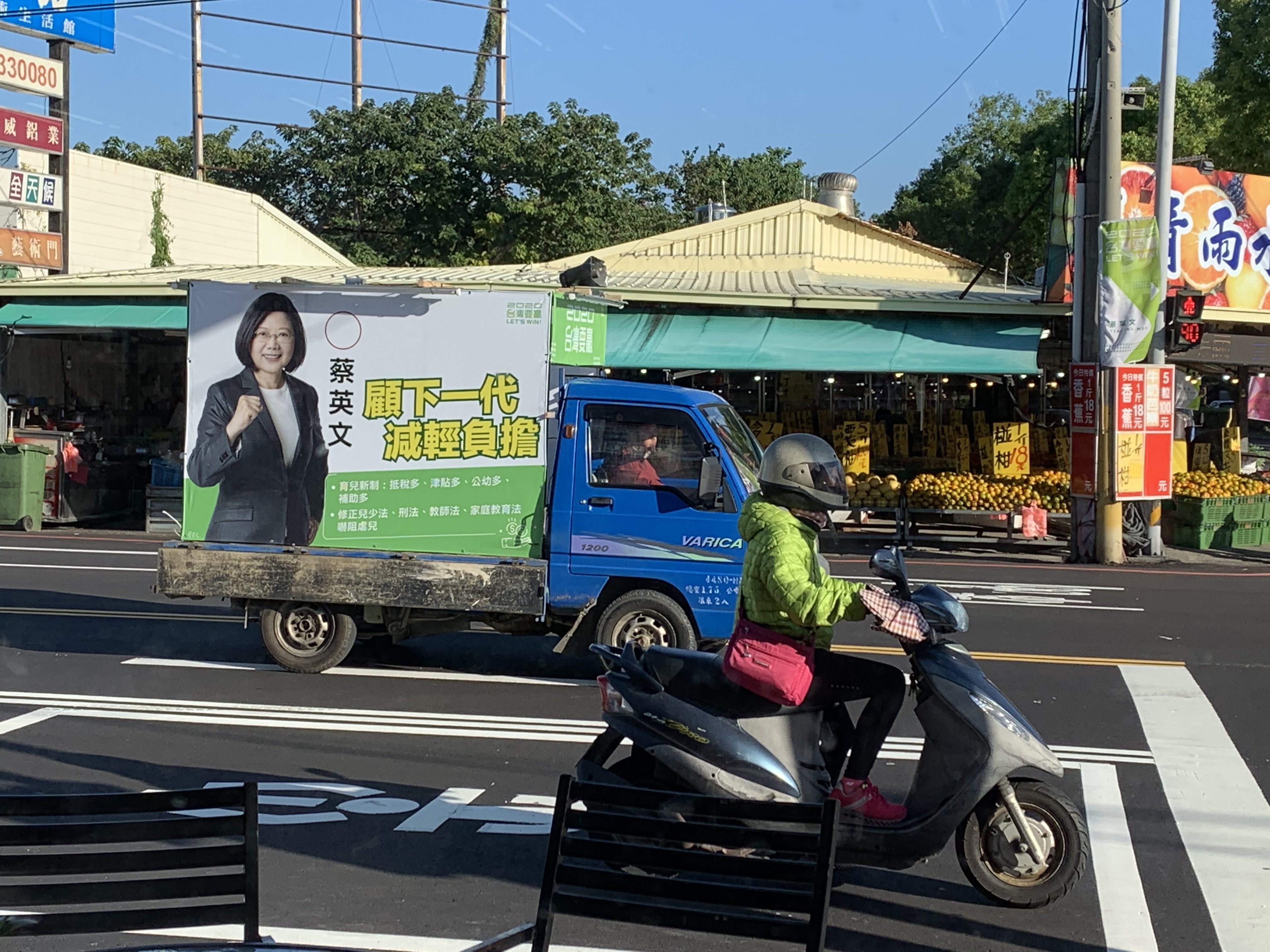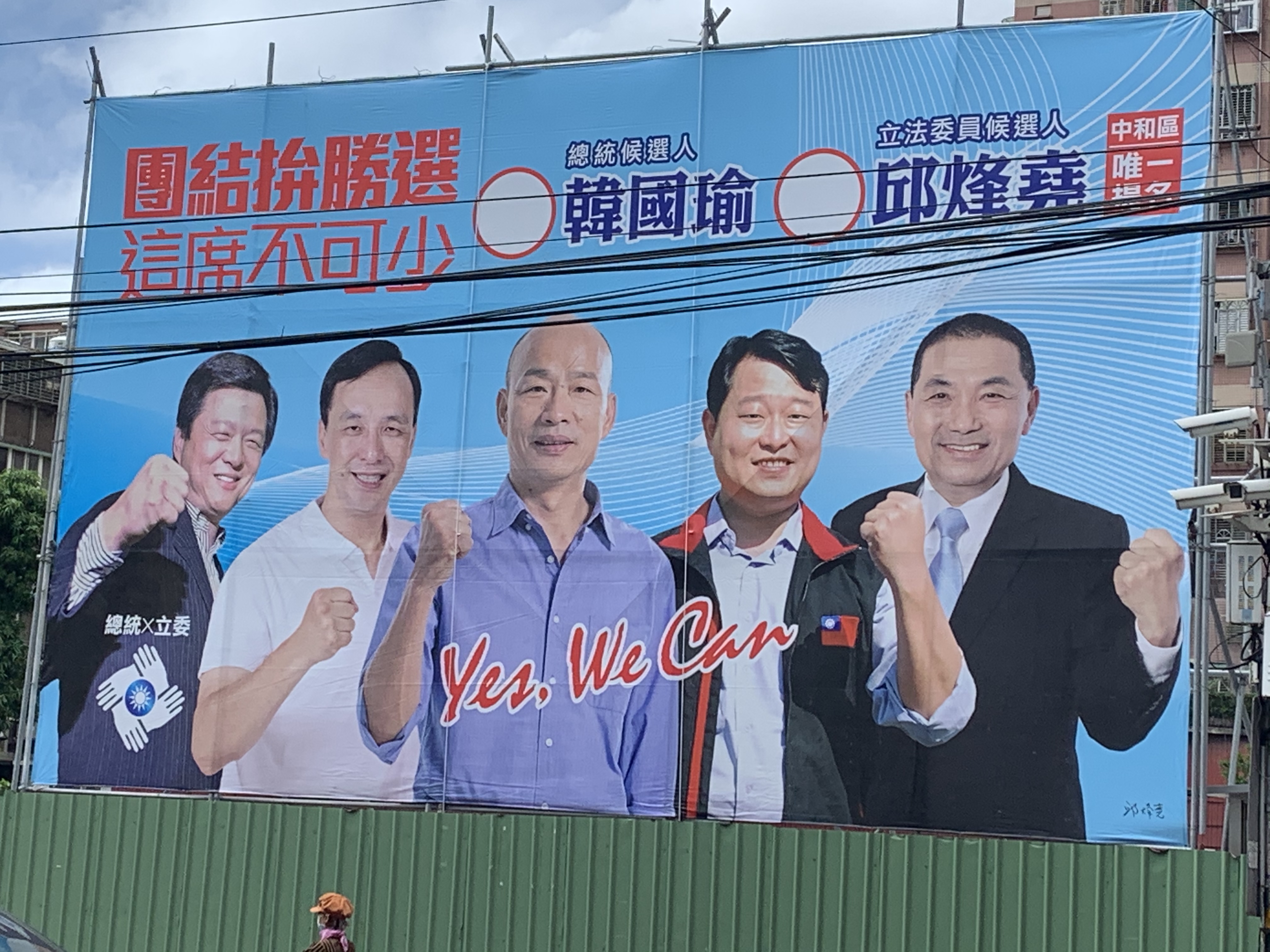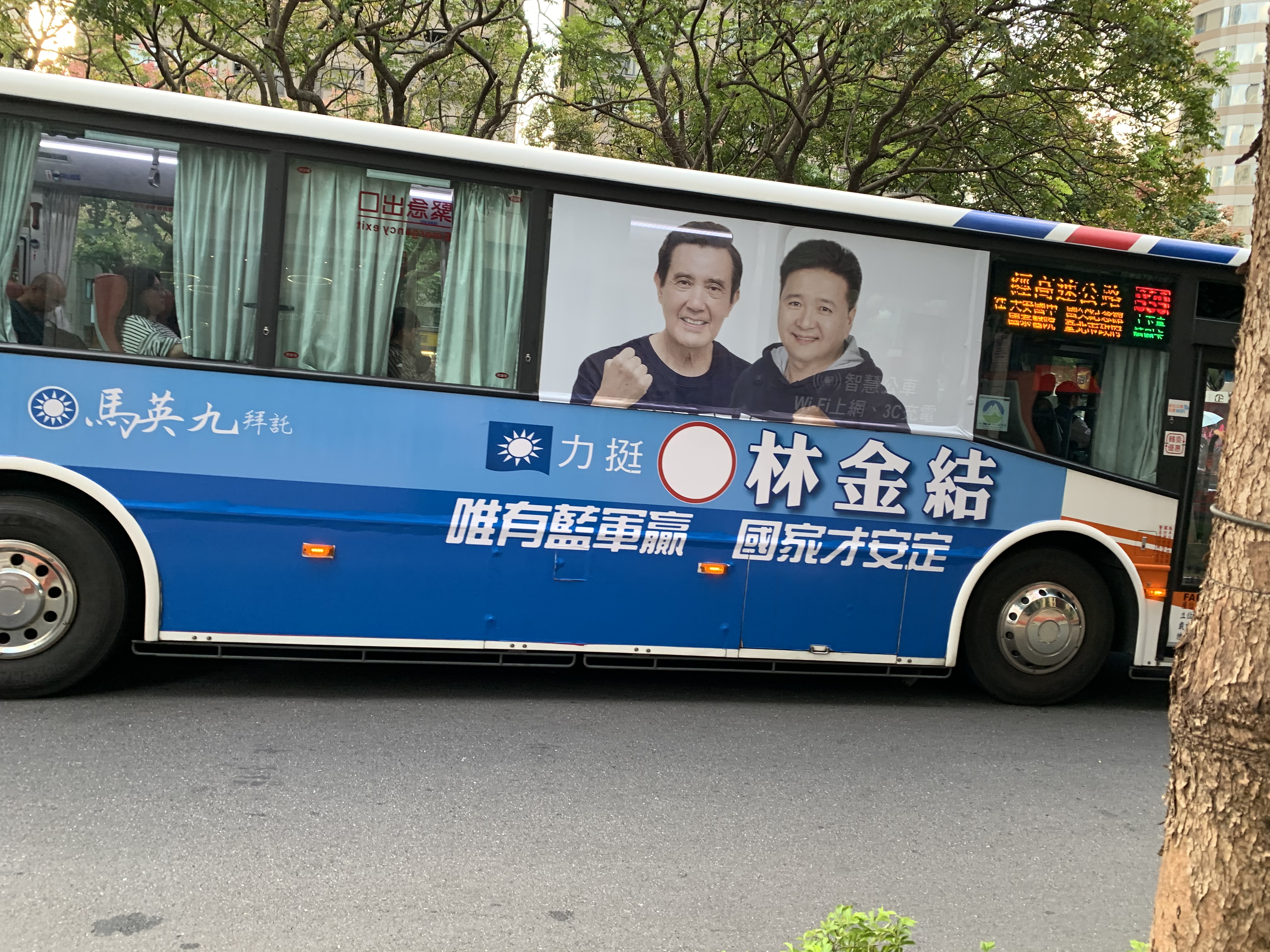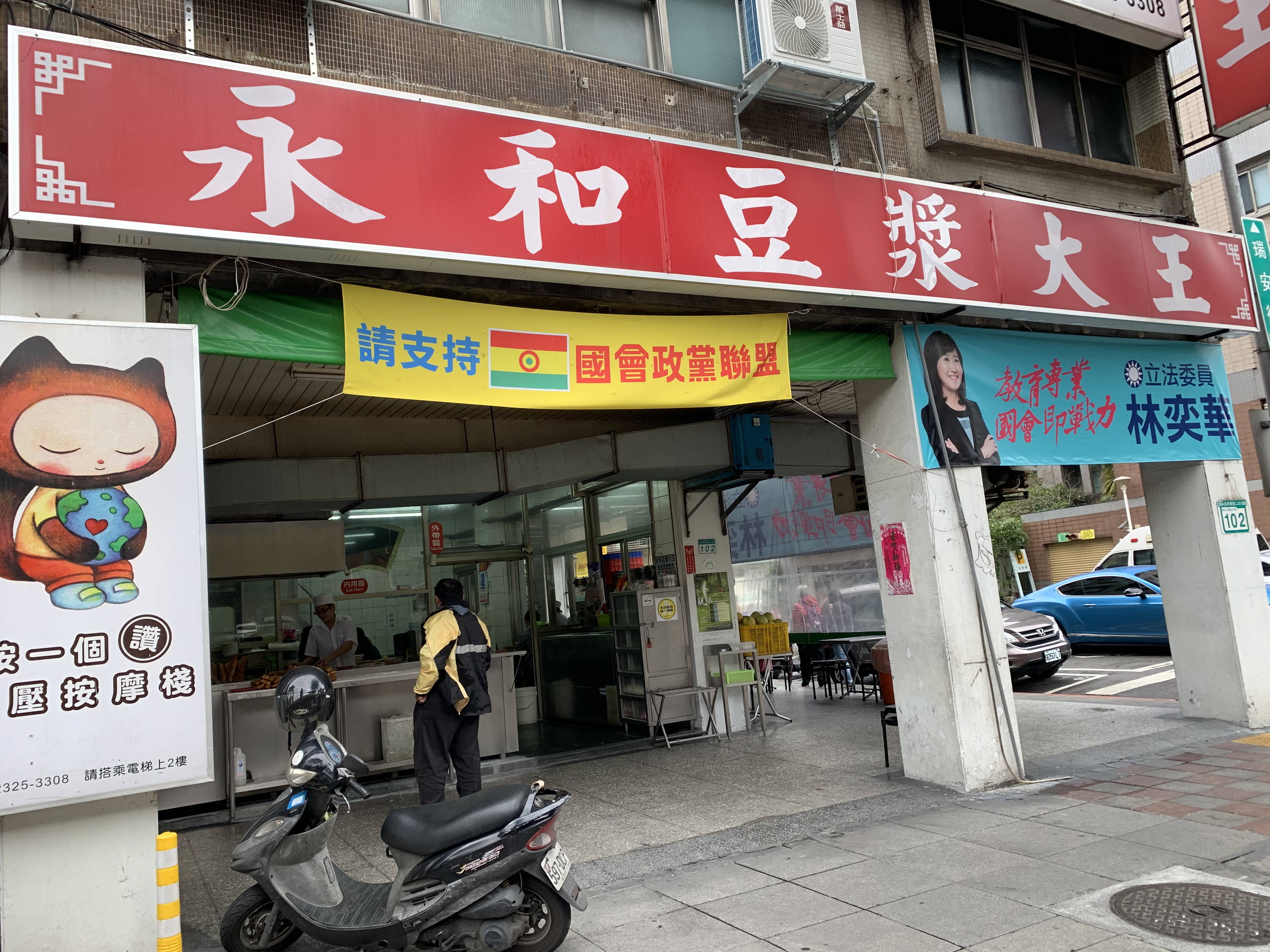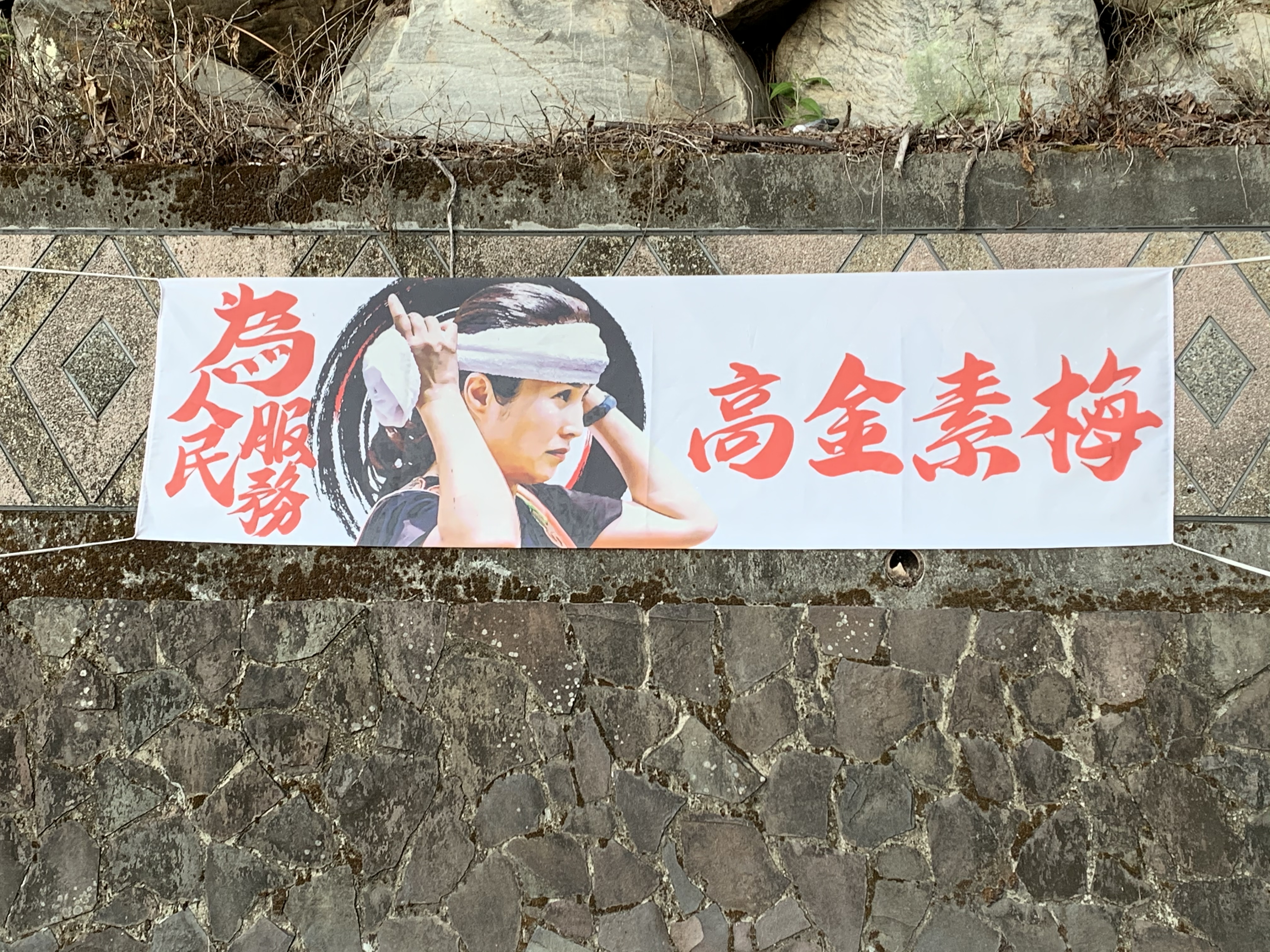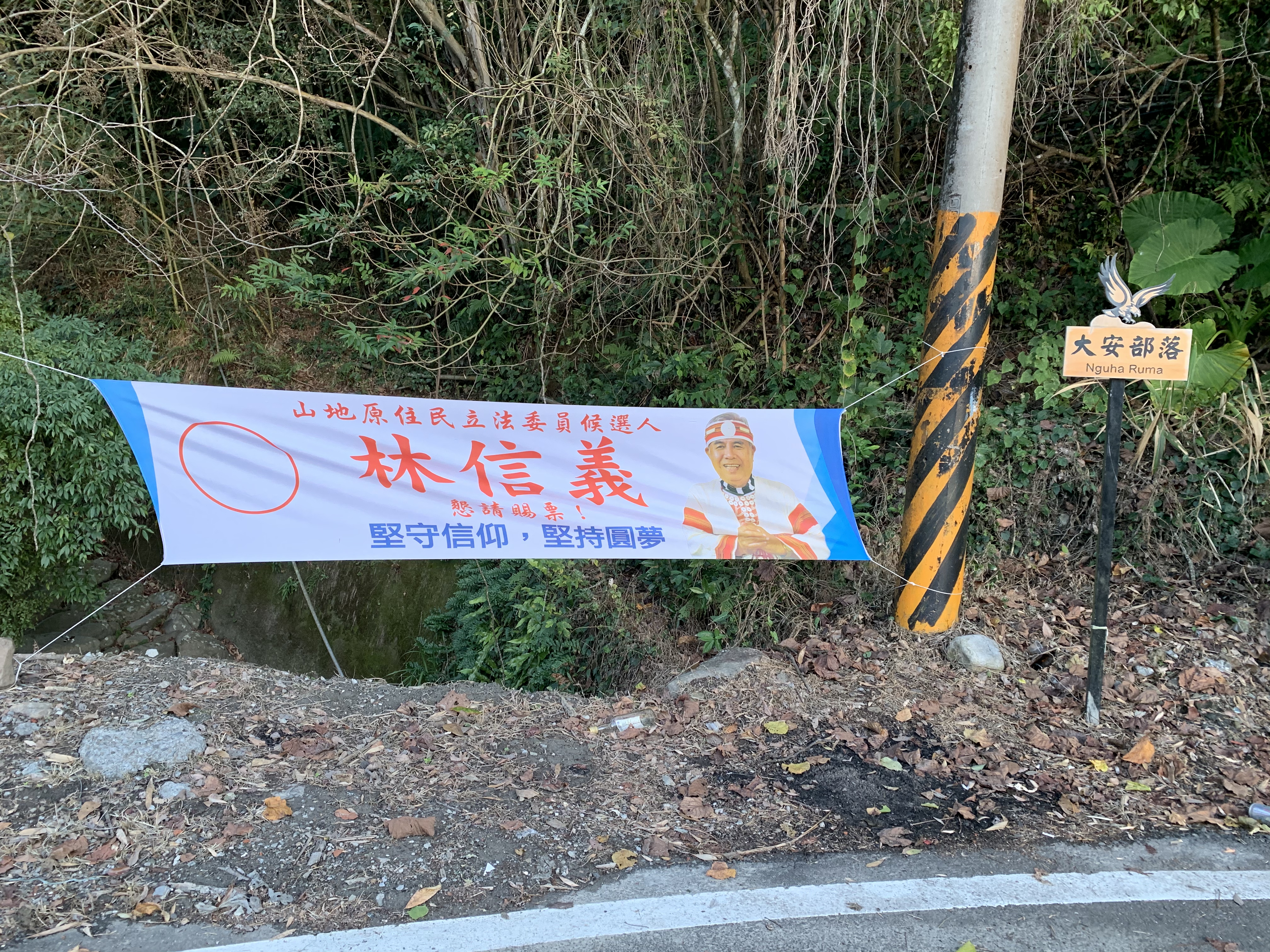 |
| I don't know, this just seems appropriate. |
In the current election season, I’ve noticed a new cluster of third party political figures attempting to refer to themselves as “third force” as a signal to voters that they represent some sort of new political wave. Most of the people actively using this term, or appearing onstage next to people who do, seem to be old guard - say, James Soong and the People First Party (PFP), Terry Gou and his general crappiness, Ko Wen-je and his general crappiness.
Considering that in recent years, the term “third force” has more closely been associated with progressive, pro-independence political parties such as the NPP, I think it’s worth a closer look at what it actually means both historically and in contemporary discourse. Is there room in the meaning of “third force” for non-progressive, generally pro-China parties or is it pure appropriation for political gain? Perhaps the answer is somewhere in between?
The general meaning of the term “third force” in a global sense - that is, beyond Taiwan - simply refers to smaller third parties who are unaffiliated with big-party power blocs, though in practice they often support larger parties or coalitions. What those third parties actually stand for is irrelevant if we take this definition.
In Taiwan, the term “third force” has been around a lot longer than you’d guess from a quick n’ dirty Google. Results almost exclusively bring up the NPP, and sometimes mention smaller parties at the same end of the political spectrum which either formed or gained social currency - if not actual power - after the 2014 Sunflower movement.
Dig a little, however, and you’ll find that the idea has been around a lot longer. Around the turn of the millennium, it meant pretty much any third party, with a spike in electoral victories around 2002. The biggest of these was the PFP, which claims to move beyond “green and blue” but is actually just a a satellite pan-blue party. There was also the pro-independence Taiwan Solidarity Union (TSU), which currently holds no seats, the pro-unification and generally horrible New Party which holds a few local seats but none on the legislature, and the Green Party which has held a handful of city council seats in the past but never made it to the legislature.
All of these could be called “third force”, and all of them were founded in the 1990s or early 2000s. All of them have won at least a few seats in the past, at least locally. And yet they have wildly divergent political views.
But, let’s be perfectly honest, that definition of “third force” - any unaffiliated set of third parties which defy a major-party binary - just isn’t what people mean when they use is to refer to Taiwanese politics.
New Bloom defines “third force” as a veritable Pleiades of post-Sunflower parties and political luminaries - bright young things, newcomers to politics, and as such generally progressive and pro-Taiwan. These would be the New Power Party (NPP), Trees Party and Social Democratic Party (SDP) folks: these parties formed around 2014-2015.
In one sense, I think this definition has real currency. As someone who impersonates a linguist, I am very much a descriptivist. Words mean what the general societal consensus believes they mean, and it can be very hard to research and clearly define all of their associated connotations and subtler meanings, especially as such meanings are prone to sometimes-rapid evolution.
Although the explicit meaning of “third force” does not technically require a party to be post-Sunflower, pro-independence or progressive, the current connotation of this term does include these meanings. Such implicit connotation in use - that is, the full extent of the term’s current pragmatic meaning - can’t just be ignored because it’s hard to categorize, or because it has evolved from earlier meanings.
Although the explicit meaning of “third force” does not technically require a party to be post-Sunflower, pro-independence or progressive, the current connotation of this term does include these meanings. Such implicit connotation in use - that is, the full extent of the term’s current pragmatic meaning - can’t just be ignored because it’s hard to categorize, or because it has evolved from earlier meanings.
That said, it’s still problematic to use “third force” in this way without examining it further. Other parties that can be said to be in this constellation include Taiwan Radical Wings (now Taiwan Statebuilding Party), which was formed in 2012, before the Sunflower Movement, though it surely drew some of its energy from the pre-Sunflower rumblings of the Wild Strawberries, anti-media monopoly and anti-land expropriation protests - many of those activists went on to become Sunflowers. The Green Party could even be included, and they were founded in 1996!
On the other hand, conservative/pan-blue or straight-up creepy parties like the Minkuotang (now merged with the Congress Party Alliance) formed in the same post-Sunflower wake. The Minkuotang was founded in 2015). There's even creepier Faith and Hope League, a conservative Christian anti-gay party formed 2015 in the wake of the marriage equality wars. Ko Wen-je’s Taiwan People’s Party (TPP) and Chen Shui-bian’s Taiwan Action Party Alliance (TAPA) have formed more recently.
If the term means “political parties formed after 2014”, we have to include them.
If it means “parties of generally young progressives”, we don’t, but we do have to include the Statebuilding Party and Green Party, which throws the post-2014 connotation into question.
It’s also worth considering what we call “progressive” - do we include the Labor Party (formed 1989) in that? They are political leftists, but also unificationists. They are not pro-Taiwan.
If we define “third force” as being pro-Taiwan/pro-independence, we don’t have to include them, but we do have to include TAPA, who are not progressive, and the TSU, whom I have anecdotally found to harbor a streak of Hoklo nationalism that I find unpalatable and anti-progressive. Neither party skews young - quite the opposite.
We also have to consider whether the term includes the independents - most notably Freddy Lim and Hung Tzu-Yung, both of whom left the NPP earlier this year. And, of course, there’s the question of whether one can be truly considered “third force” if they choose a side in the great green-blue divide. Do Lim and Hung, actively campaigning for Tsai Ing-wen, count? How about the SDP now that Fan Yun has gone over to the DPP (they’re not dead though - they still have Miao Poya, their only elected representative). If we can include them, why can’t we include pan-blue parties?
Does it only include political groups that have power or who might influence the current election cycle? If so, I don’t think we can include Trees Party or Green Party, or the TSU at this point.
You’re probably asking by now - “who cares?” Well, as a linguist impostor, I care.
But also, how we define the term has political implications. As a friend pointed out, we can’t just use it to mean what we want it to mean, and we can’t just define it to mean “the people we like”, finding excuses to exclude people we don’t like.
With that said, allow me to define the term to include only the people I like: pro-Taiwan and progressive, skewing young, but not necessarily formed after 2014 and not necessarily directly opposing the major parties. That gives us Green Party, SDP, NPP, Statebuilding Party, Lim and Hung (and their Frontline alliance - more on that later), and the Trees Party.
Please don’t take my definition too seriously. I don’t have a better one though - all I can say is, don’t apply the term lazily. Don’t just throw it out to describe people you like without examining further what you mean by it. By all means, leave lots of comments with your own ideas of what the term should mean in 2019.
So what political implications does this have?
From a discourse perspective, if the societally-understood connotation of a term not only has power but is also in a state of flux, that means it will be seen as ‘up for grabs’ by anyone hoping to appropriate it.
If the term is evolving, it makes sense that people vying for power would want to direct its evolution in a direction that benefits them. That’s what we can see with Gou’s use of the term.
If that’s the case - and I believe it is - there’s a concerted and intentional attempt to move “third force” away from its current association with Sunflower ethos, and back toward its earlier meaning of “any third parties who claim to be unaffiliated with the DPP or KMT (but in fact usually are)”.
I don’t care for this sort of intentional strategizing, but honestly, he’s free to try. If I get to define it in a way that includes only people, parties and beliefs I like, he is free to do the same. I’m not sure it can be called ‘appropriation’ given the term’s history - it sure feels that way, but I have no well-founded basis on which to challenge it.
I suppose that’s a good thing insofar as the global meaning of “third force” never required newness or progressive ideology, but problematic in that it confuses the pan-blue/pro-China and pan-green/pro-Taiwan sides. I think it would be better to think of these two groups as separate.
It also makes it harder to identify and discuss the liberal-conservative axis. While the pro-China/pro-Taiwan cleavage is still the most enduring and influential split in Taiwanese politics, I still believe there is a purposeful attempt underway to change that.
Finally, looking at who is attempting to gain traction as “third force” can shed some insight on their electoral strategy.
For example, Donovan Smith recently made fun of James Soong for leaning heavily on the Orchid Island nuclear waste issue. I agree that this seems like an odd strategy given how few people live on Orchid Island. But the Green Party - a “third force” party that actually has access to the term’s new social progressive connotation - does really well on Orchid Island (and nowhere else). I don’t think, therefore, that Soong’s tactic here is just to get Orchid Island voters. I think it’s to encroach on the Green Party vote on Orchid Island (and maybe grab some votes from the KMT too), and through stealing the Green Party’s votes there, get some of their “third force activist” cred to rub off on the PFP.
To be fair, I don’t think this will work and in any case it’s a waste of time that wouldn’t help the PFP gain much even if it did.
I do think it's significant that Ko (who paints himself and his party as "apolitical"), Soong (who does the same, while going after other third party bases) and Gou (who directly invokes the term "third force") tend to appear together - a uniting of pan-blue, conservative voices trying to bring cohesion to that end of the third party spectrum, and (re)take the moniker "third force"?
On the other end, we have Frontline (前線), a loose alliance of pan-green/progressive candidates from different backgrounds who seem to be trying to bring more unity and cohesion to their own end of the spectrum, especially after the upsets and factionalization that has characterized the past year. Or maybe they're just trying to build a progressive, unified third force without the destructive Huang Kuo-chang element. It's entirely likely that they too are actively trying to hold onto the mantle of "third force" as they face attacks from the TPP and PFP on the pan-blue side as well as TAPA representing the old guard, conservative greens.
Side note: 前線 isn't a great name. It's easily confused with Christian group as well as with Hong Kong Indigenous (本土民主前線) - though I wonder if the similarity to the Hong Kong group's name is intentional.
It also helps us better understand what’s going on with Ko Wen-je and his party. It may seem odd that he started his political career passing himself off as a friend to pro-Taiwan progressives, won the Taipei mayoral election riding the post-Sunflower wave, and then took a turn towards China before his first term was up. We can argue whether he “changed” or whether we just didn’t see it before, and we can ask what supporters the TPP aims to attract. But within that loose Sunflower/Third Force alliance, there were always people who saw the movement not as opposing getting too close to China, but rather the way it was being done. They could be more broadly considered anti-big party corruption. There was also always a contingent (often church-affiliated) who didn’t actually share what we think of as Sunflower social progressivism.
Someone like Ko wouldn’t necessarily look as gross to them as he does to ‘us’. It makes sense that he’d then get friendly with Soong, who already claims to represent this type of voter.
In any case, how we define “third force” impacts how we look at third-party politics, liberalism/progressivism, the Sunflower effect and the China cleavage in Taiwan. Use it if you want, but think first about what exactly you mean by it, and whether that's justified.
I do think it's significant that Ko (who paints himself and his party as "apolitical"), Soong (who does the same, while going after other third party bases) and Gou (who directly invokes the term "third force") tend to appear together - a uniting of pan-blue, conservative voices trying to bring cohesion to that end of the third party spectrum, and (re)take the moniker "third force"?
On the other end, we have Frontline (前線), a loose alliance of pan-green/progressive candidates from different backgrounds who seem to be trying to bring more unity and cohesion to their own end of the spectrum, especially after the upsets and factionalization that has characterized the past year. Or maybe they're just trying to build a progressive, unified third force without the destructive Huang Kuo-chang element. It's entirely likely that they too are actively trying to hold onto the mantle of "third force" as they face attacks from the TPP and PFP on the pan-blue side as well as TAPA representing the old guard, conservative greens.
Side note: 前線 isn't a great name. It's easily confused with Christian group as well as with Hong Kong Indigenous (本土民主前線) - though I wonder if the similarity to the Hong Kong group's name is intentional.
It also helps us better understand what’s going on with Ko Wen-je and his party. It may seem odd that he started his political career passing himself off as a friend to pro-Taiwan progressives, won the Taipei mayoral election riding the post-Sunflower wave, and then took a turn towards China before his first term was up. We can argue whether he “changed” or whether we just didn’t see it before, and we can ask what supporters the TPP aims to attract. But within that loose Sunflower/Third Force alliance, there were always people who saw the movement not as opposing getting too close to China, but rather the way it was being done. They could be more broadly considered anti-big party corruption. There was also always a contingent (often church-affiliated) who didn’t actually share what we think of as Sunflower social progressivism.
Someone like Ko wouldn’t necessarily look as gross to them as he does to ‘us’. It makes sense that he’d then get friendly with Soong, who already claims to represent this type of voter.
In any case, how we define “third force” impacts how we look at third-party politics, liberalism/progressivism, the Sunflower effect and the China cleavage in Taiwan. Use it if you want, but think first about what exactly you mean by it, and whether that's justified.


